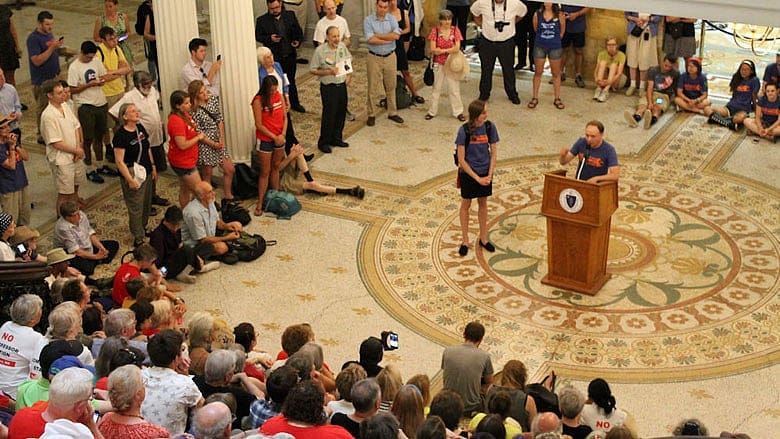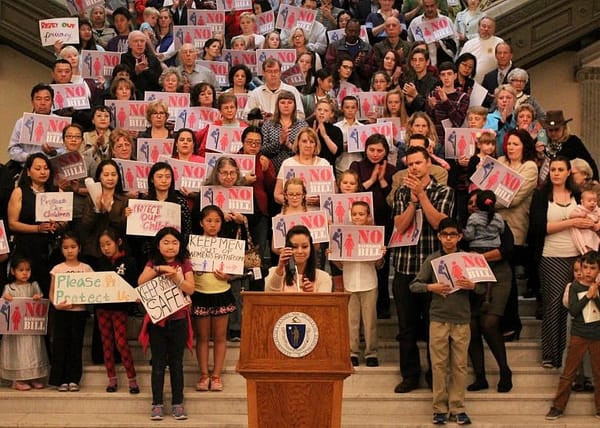Activists walk seeking stop to gas pipelines

STATE HOUSE — Forty-three miles and four days after they set out on a march from Medway, hundreds of activists filled the State House Monday morning, chanting, "Stop the pipeline or the people will."
The "People Over Pipelines" march took the demonstrators through communities including Norfolk, Walpole, Sharon, Stoughton, Canton and Weymouth, places that would be affected by a proposed Spectra Energy pipeline.

